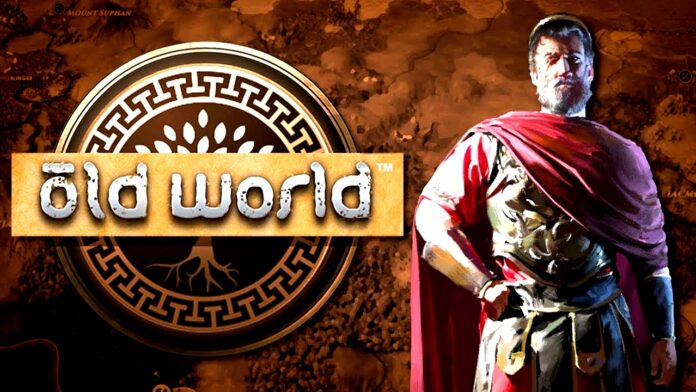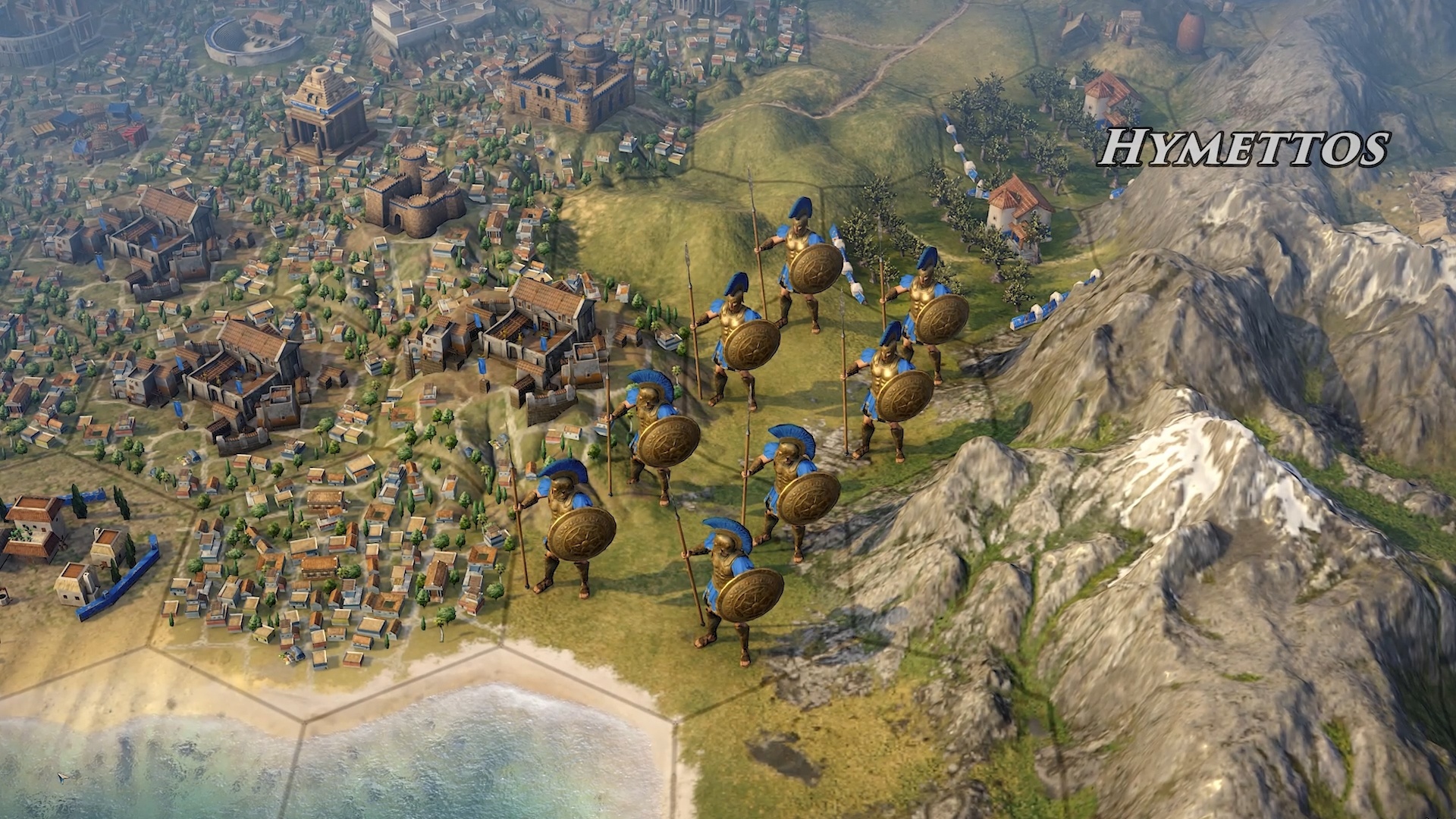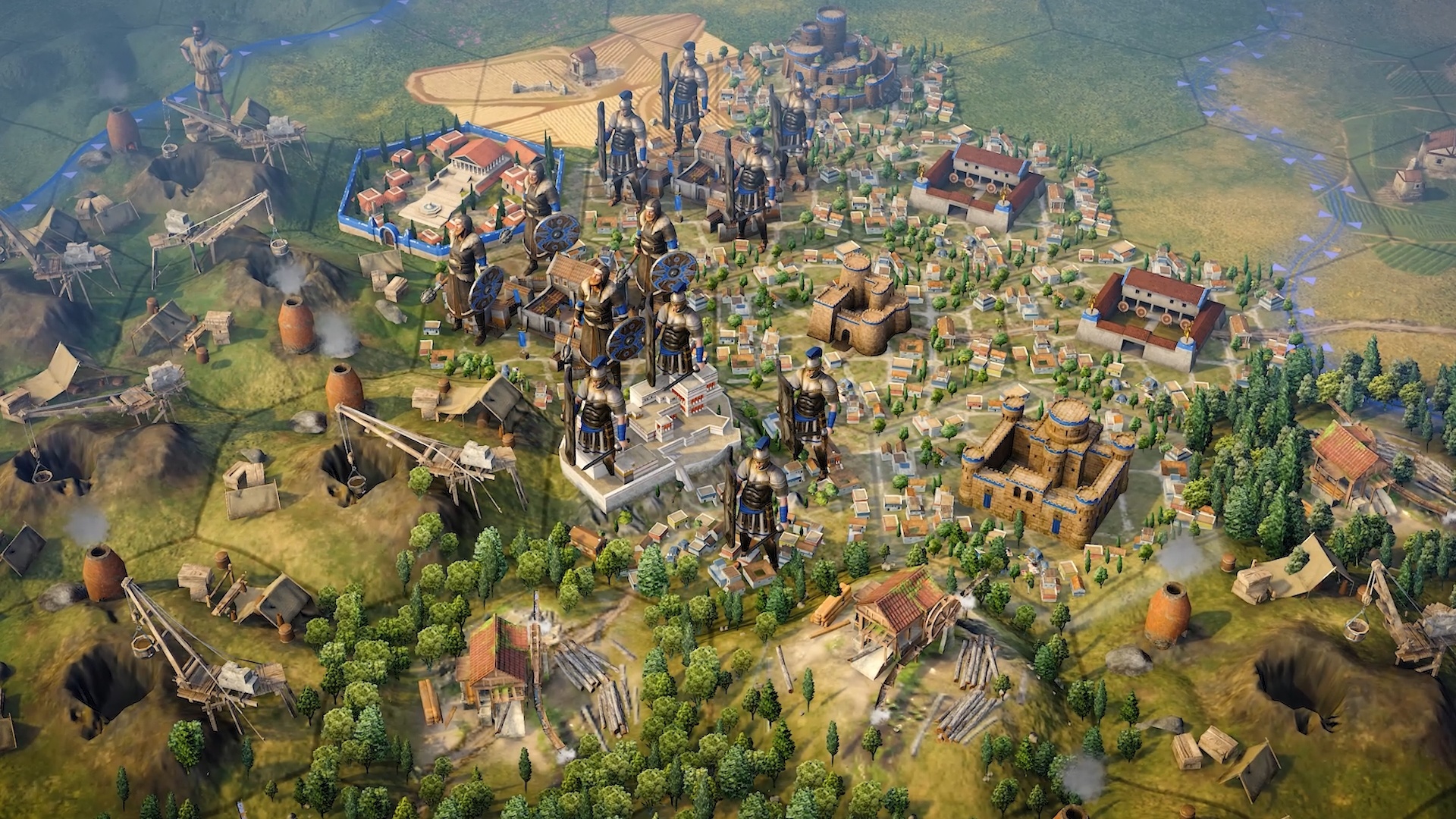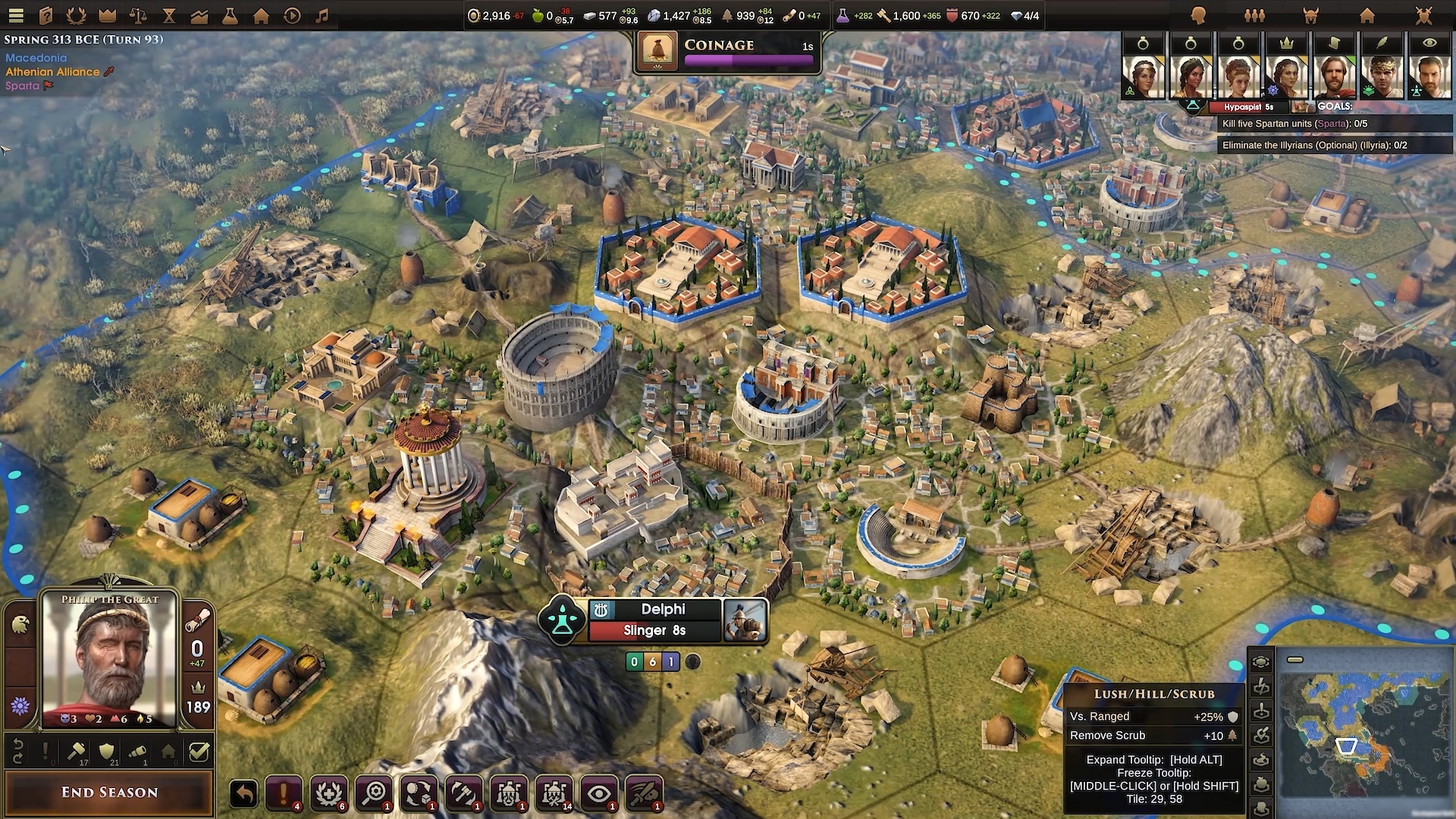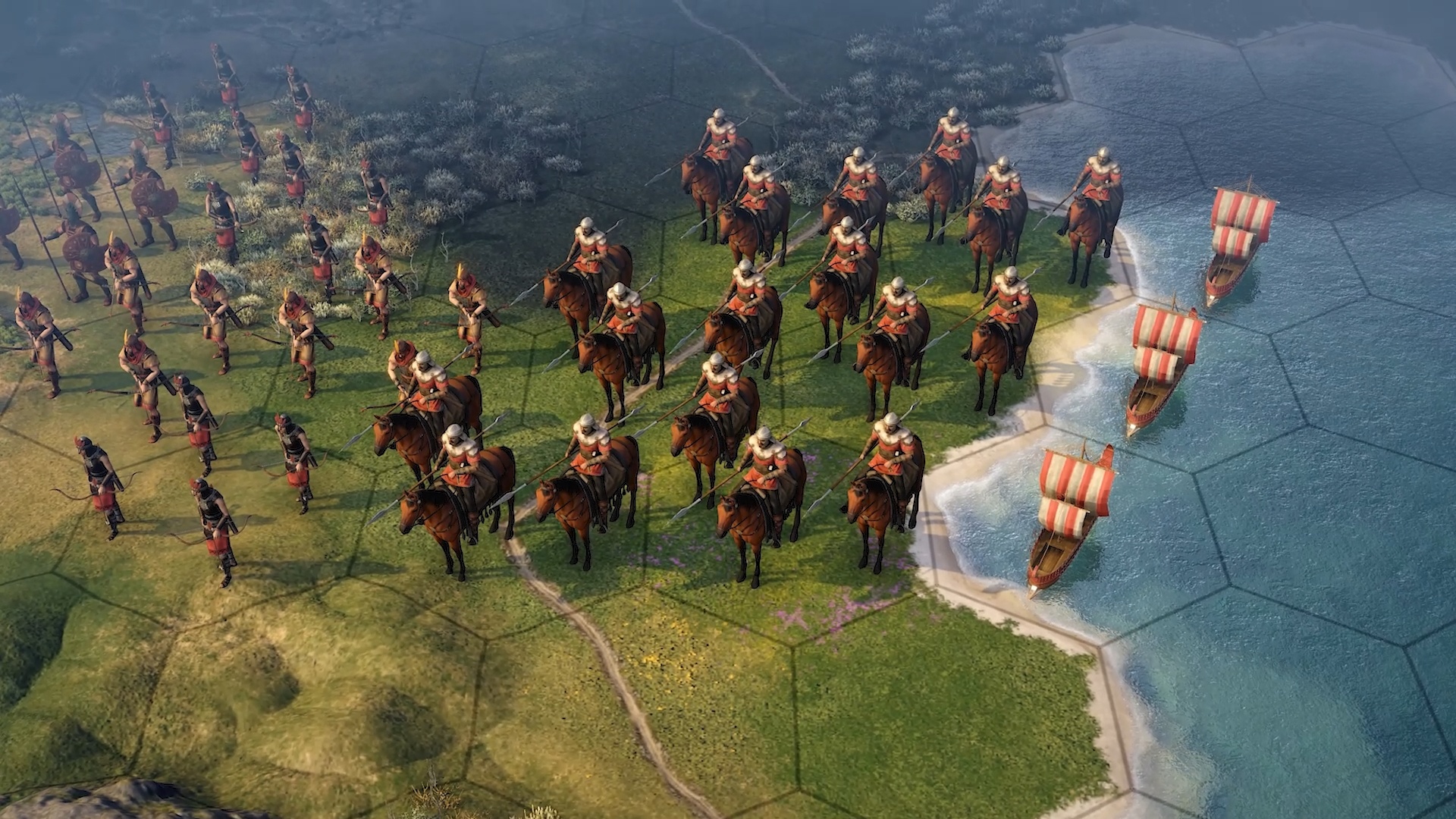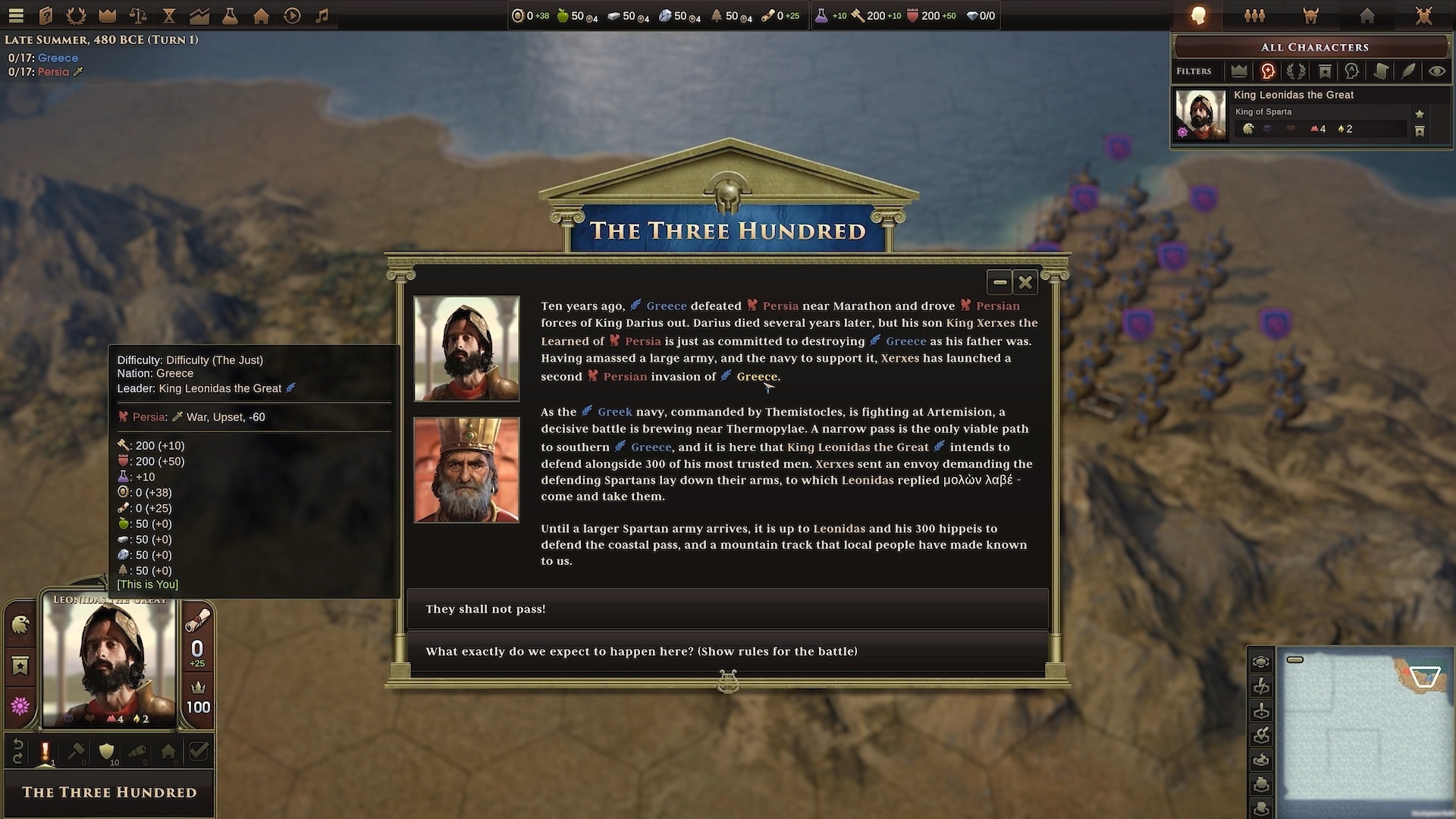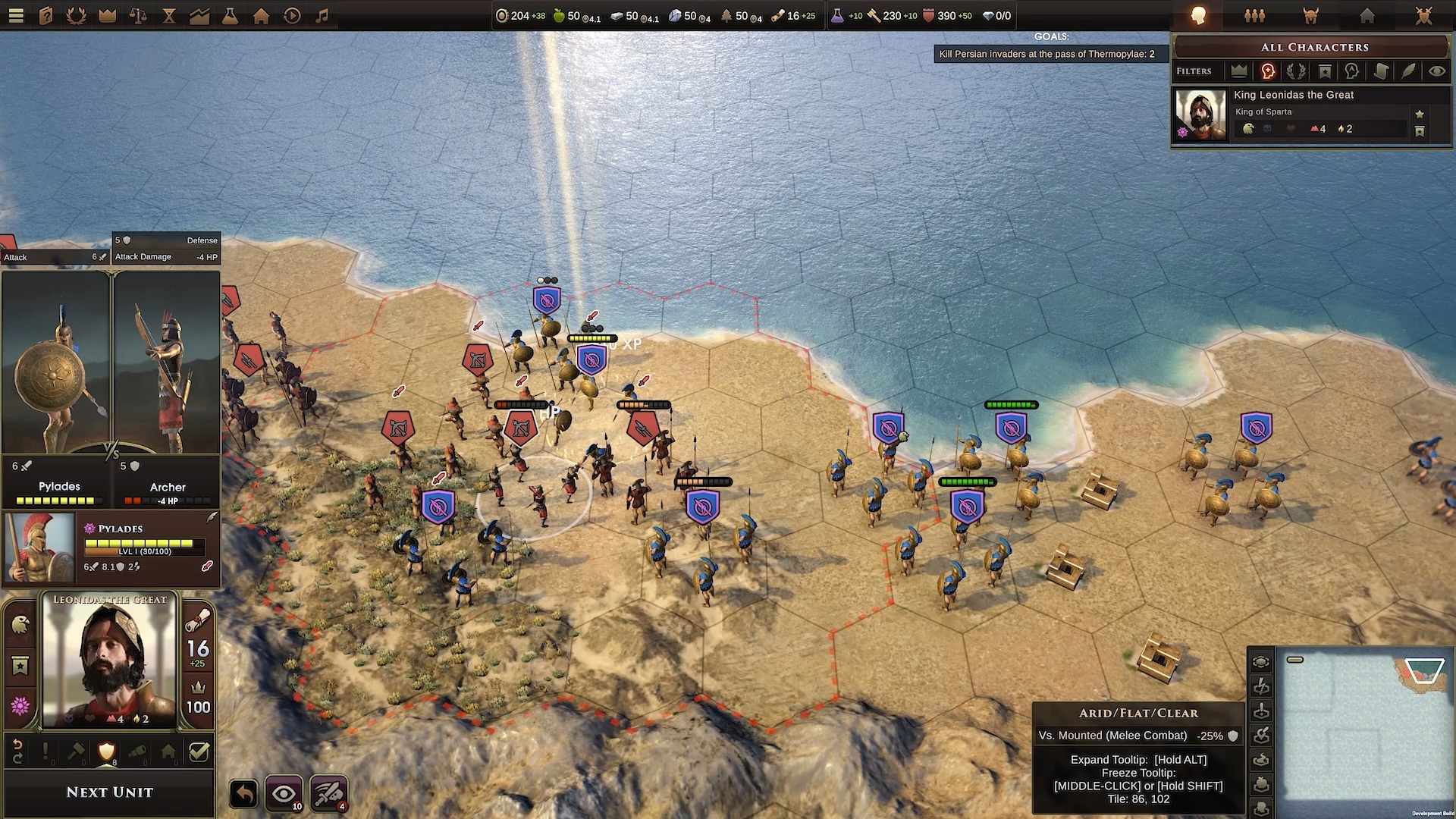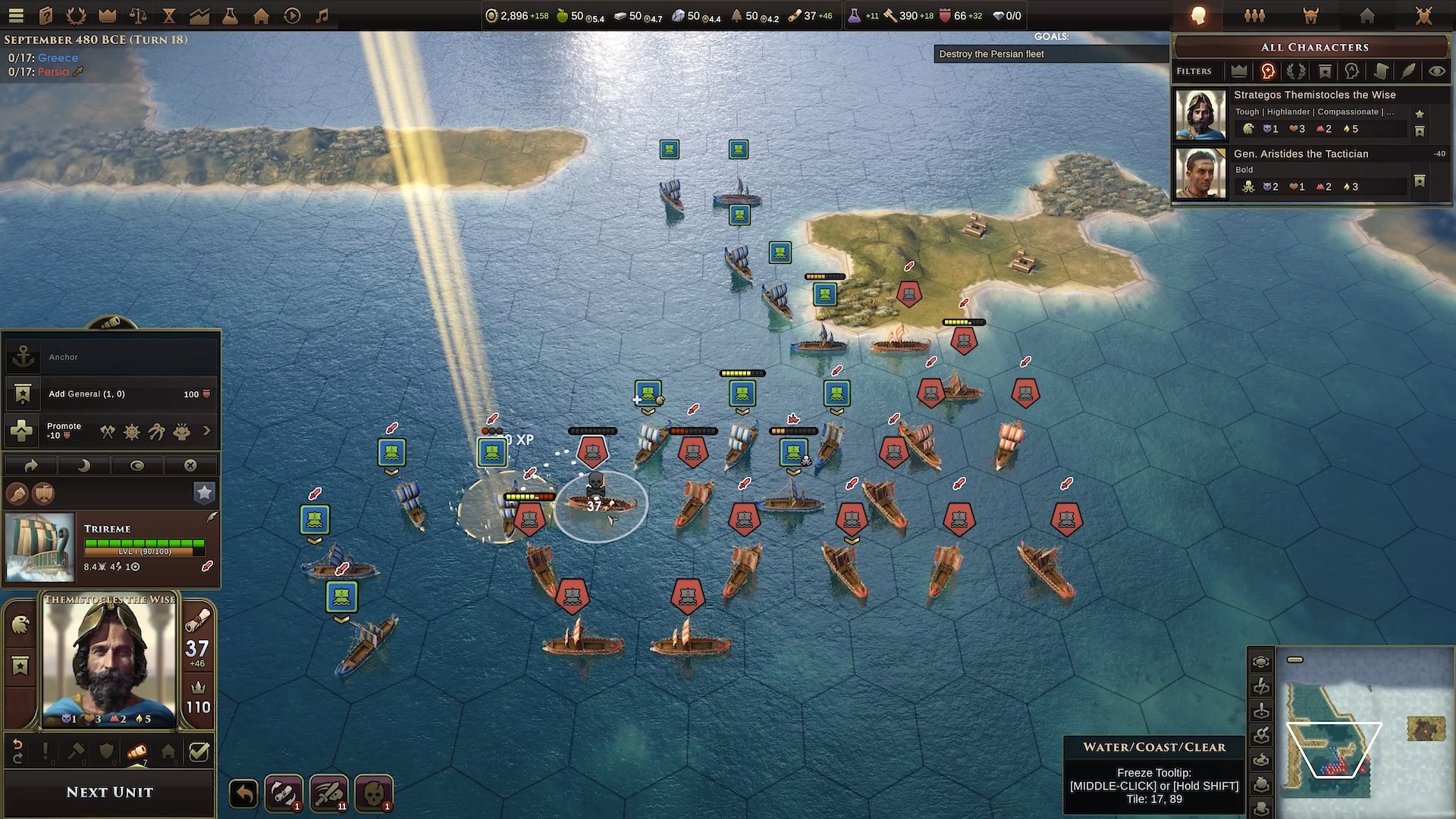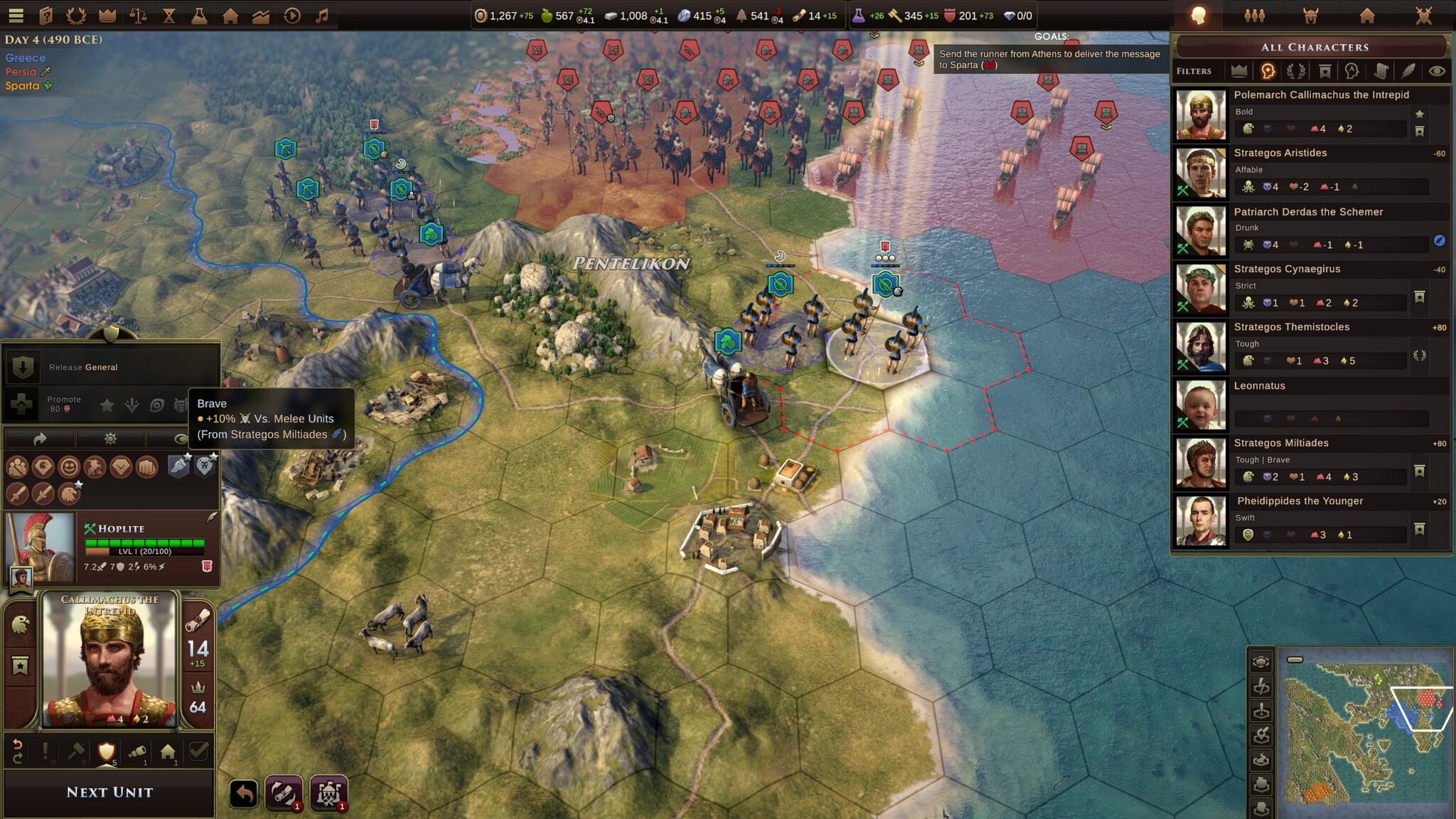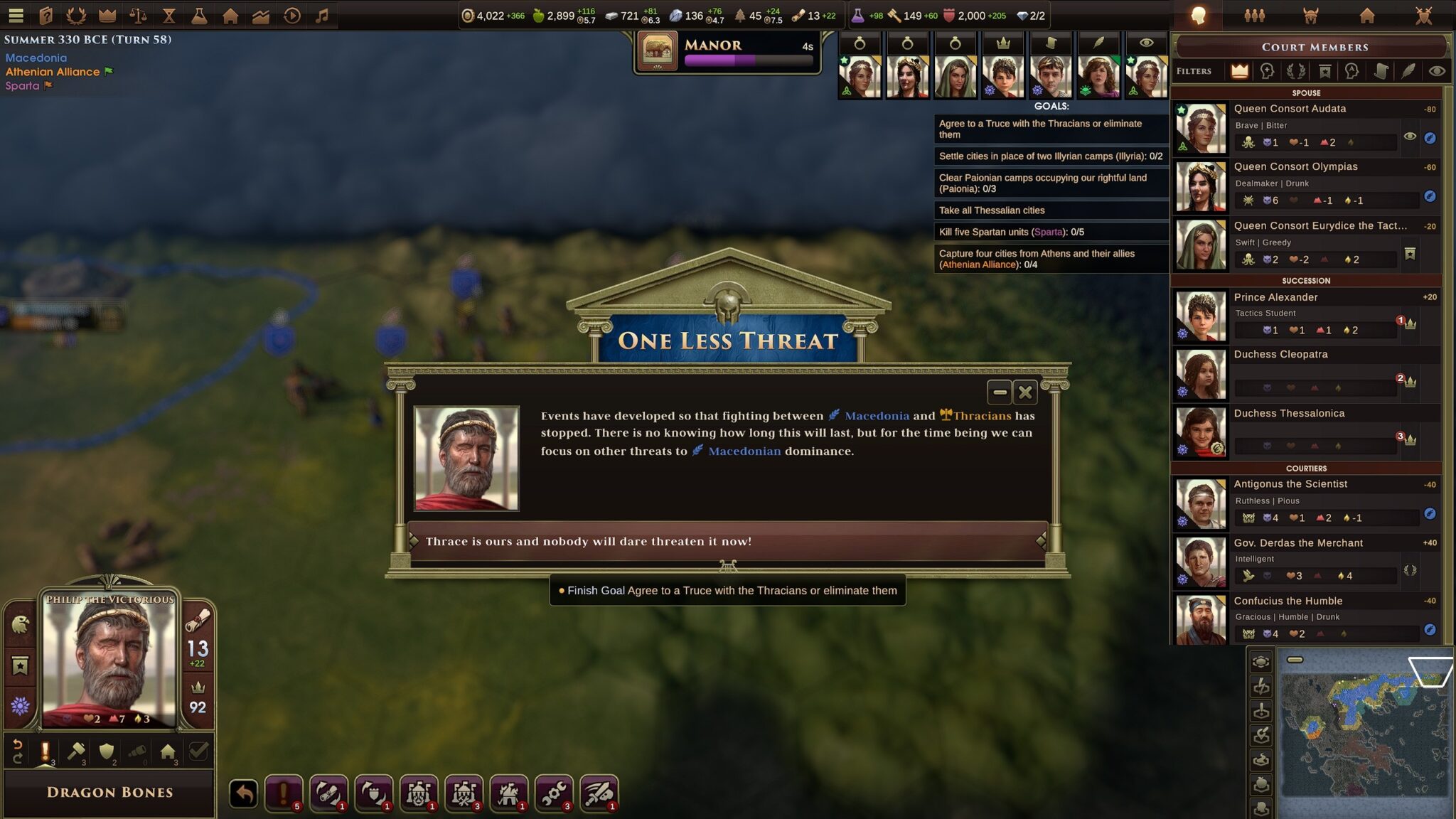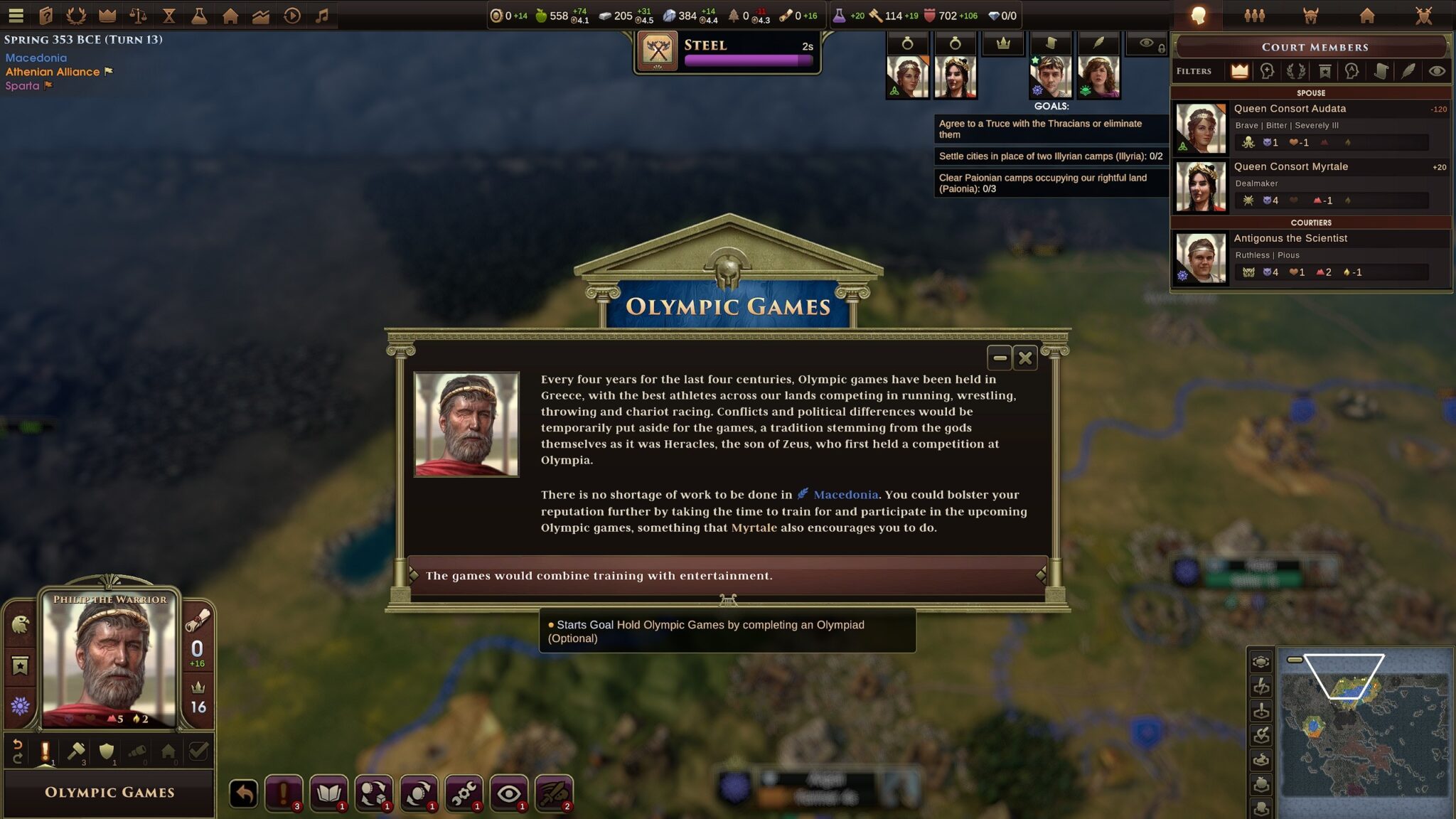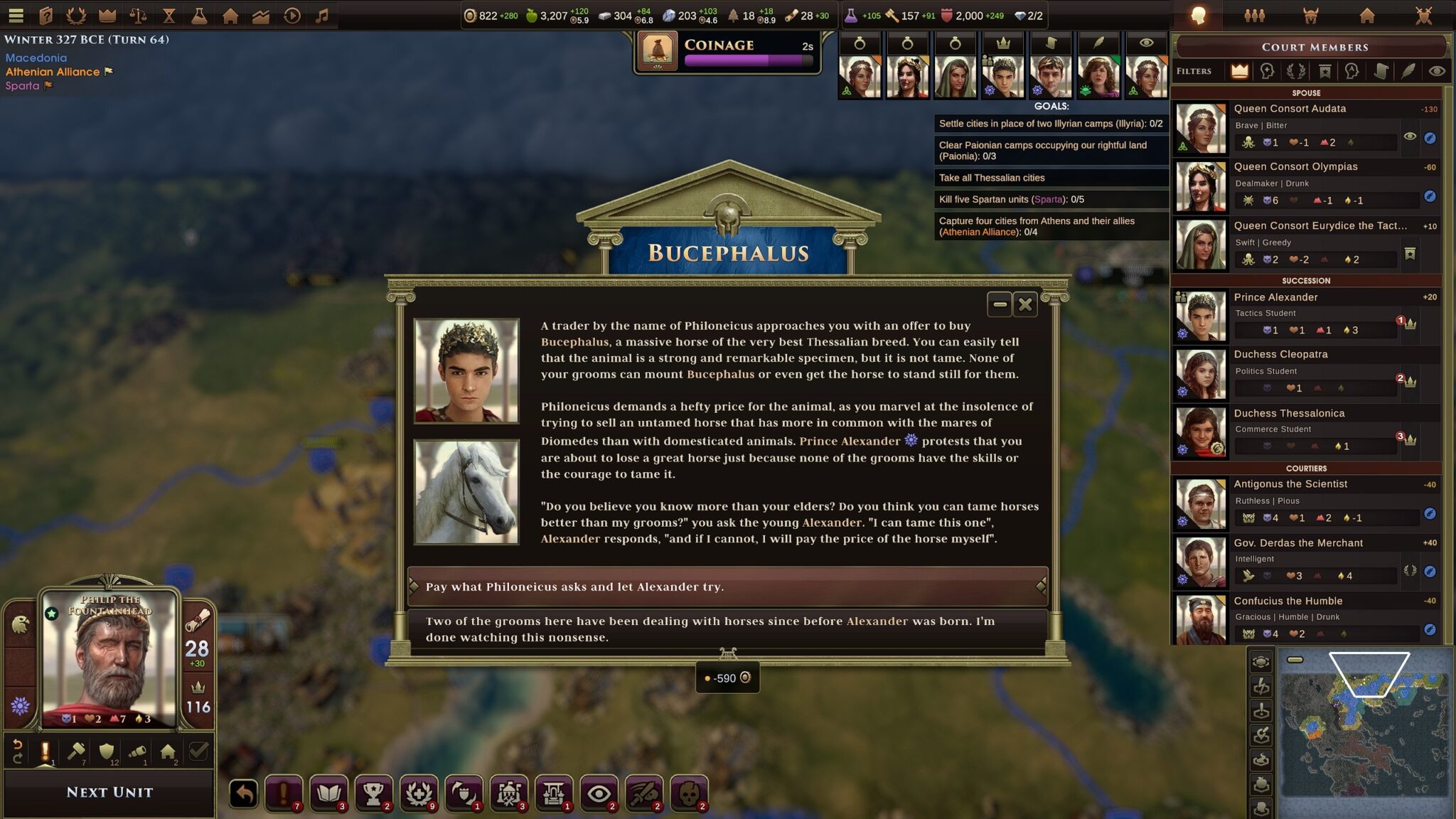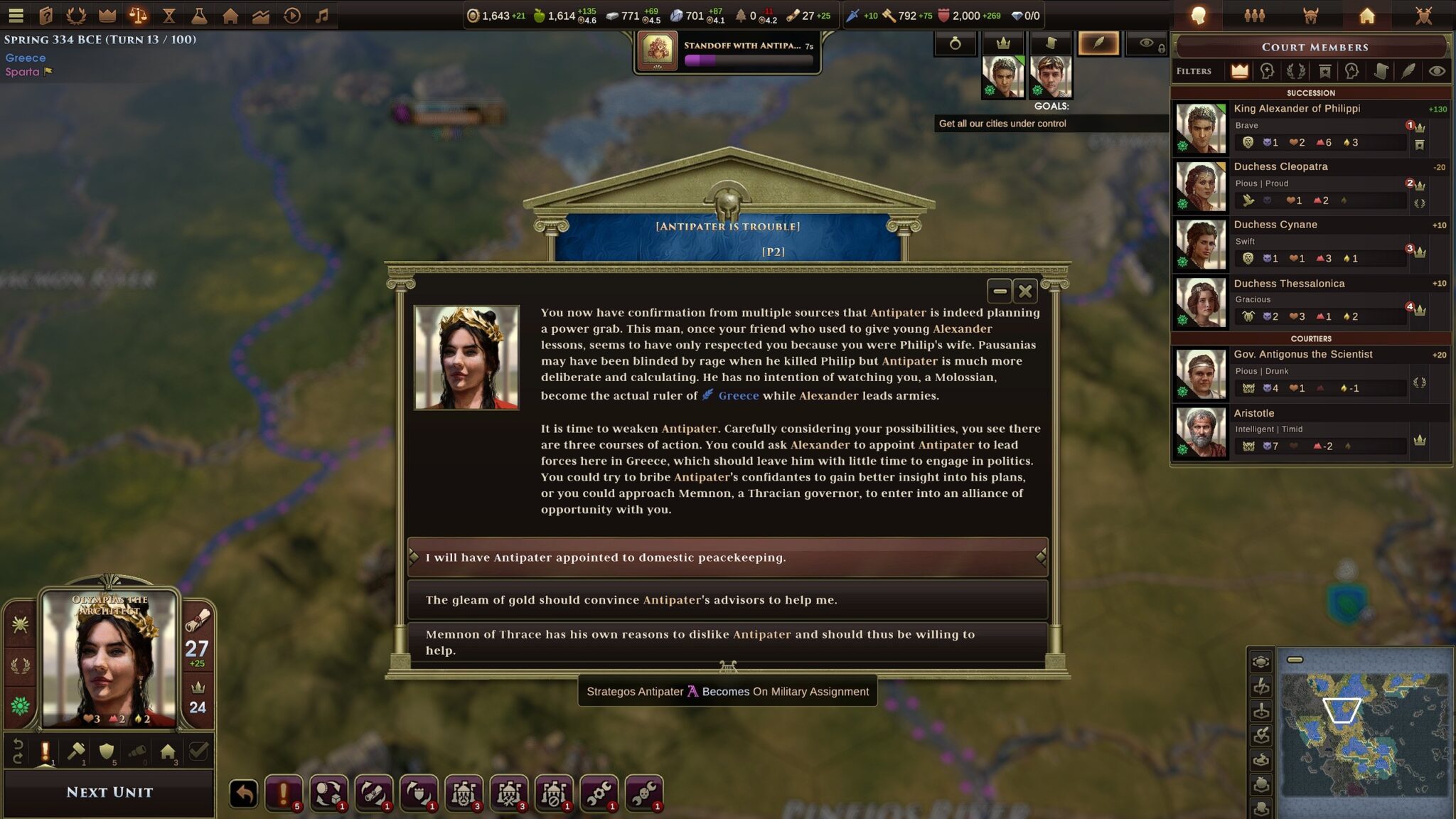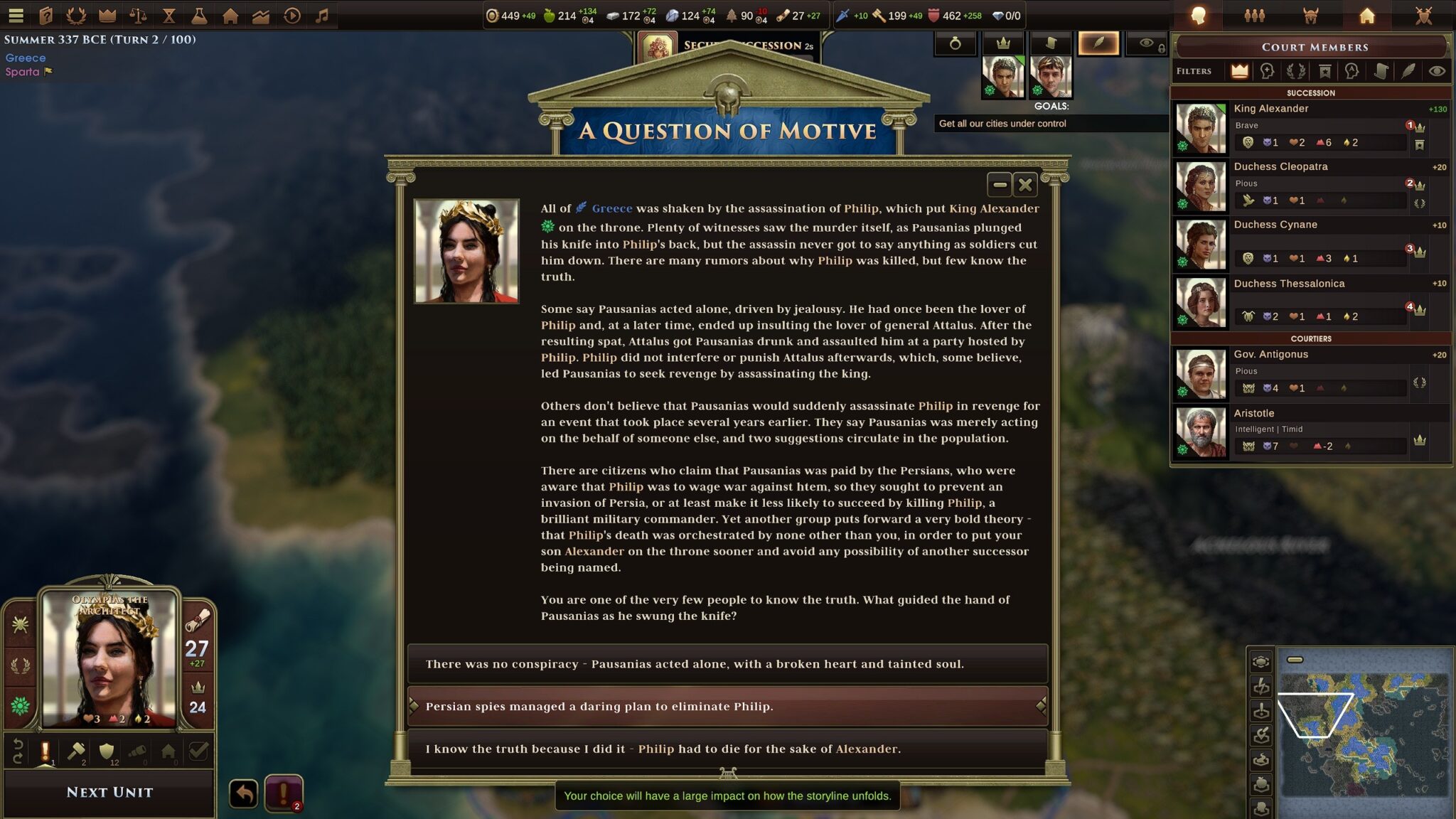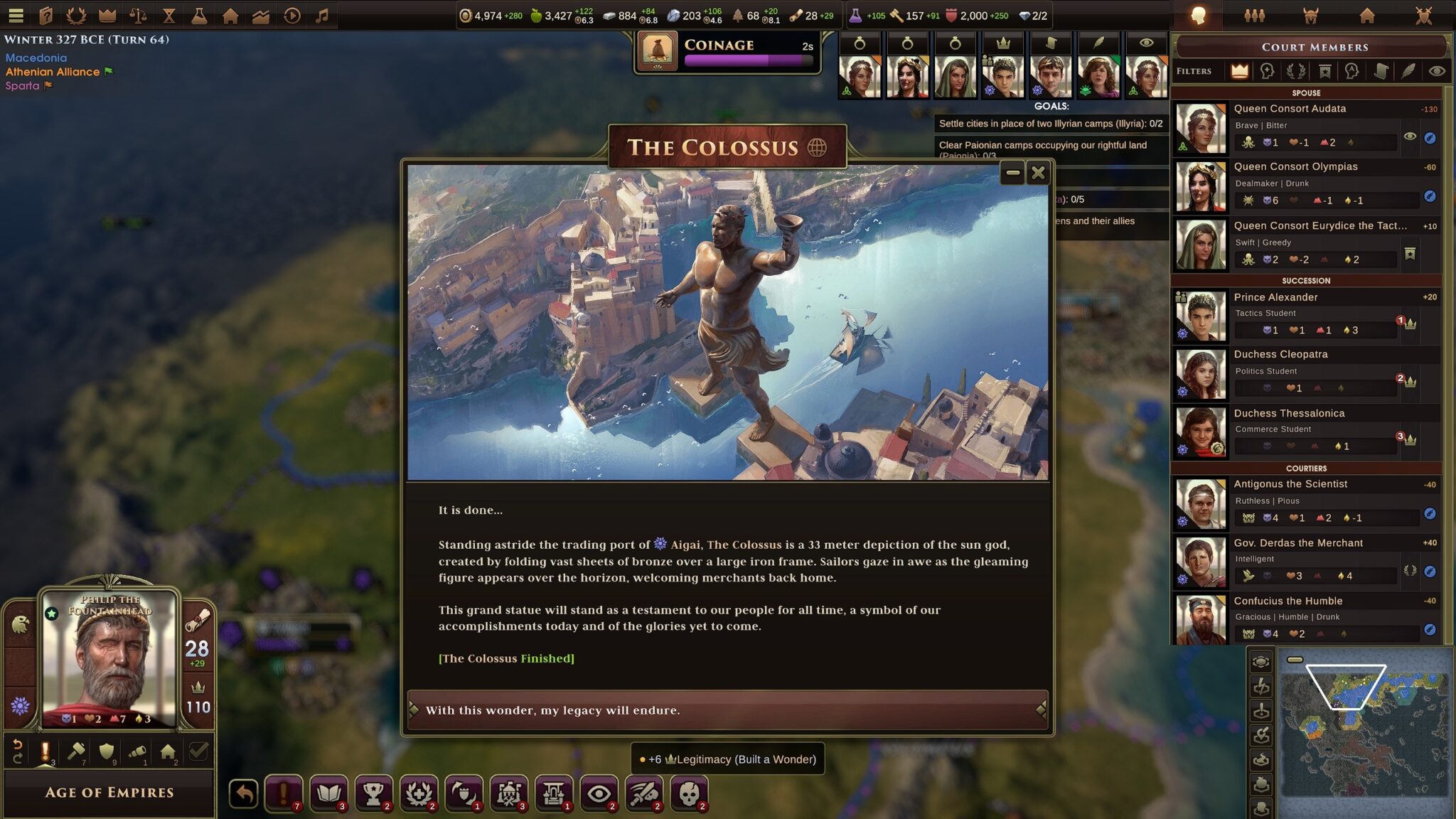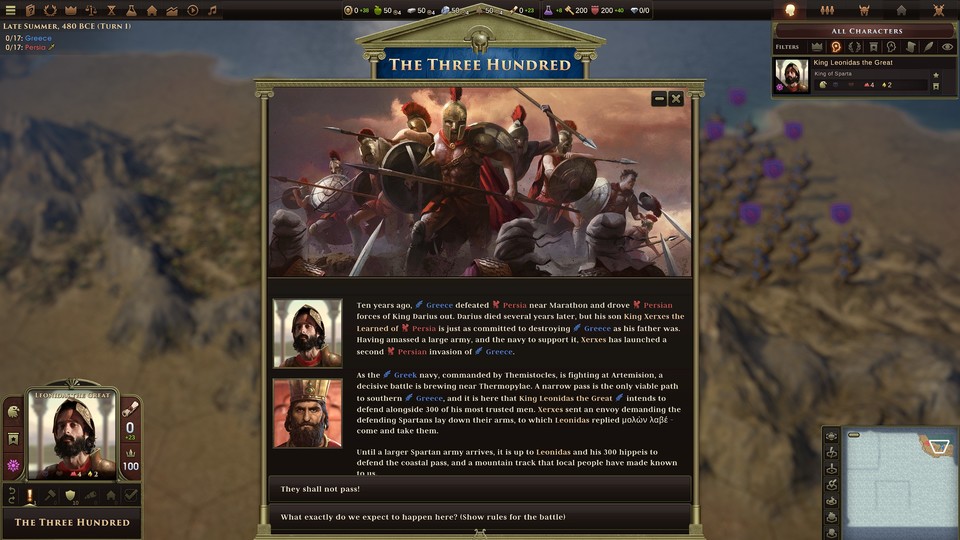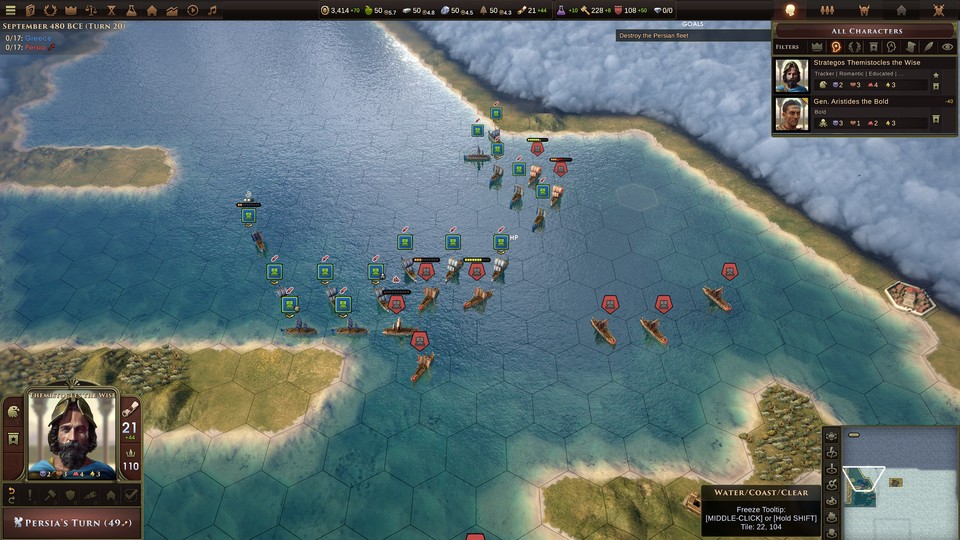Heroes of the Aegean is being given away for release on Steam and GOG.com: a scandal. Because the first DLC for Old World is forbidden good.
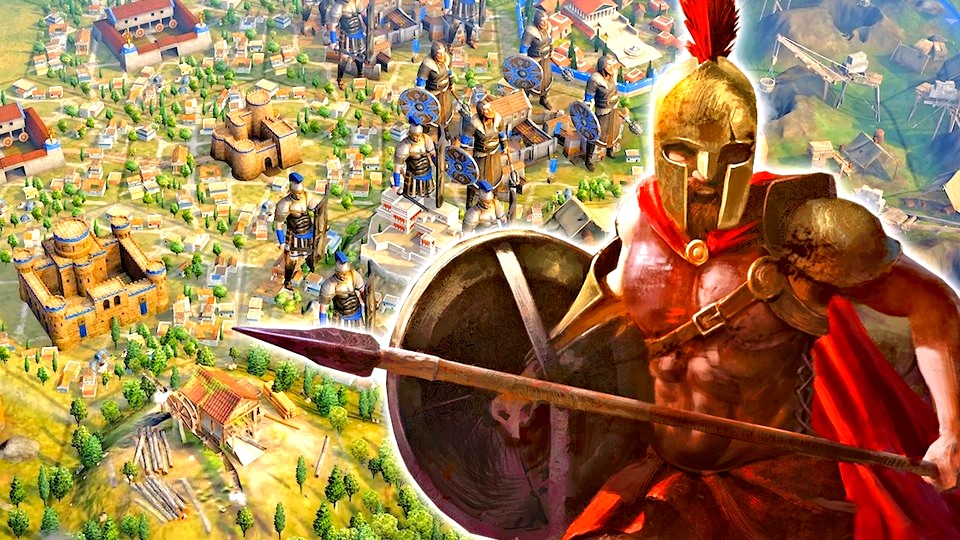
Old World has been a bit unjustly lost, both in the wider world and here at GlobalESportNews. The 4X strategy game received a strong 85 rating in the test, but received much less attention from the press and gamers compared to its other Civilization competitor Humankind. One possible reason: Epic exclusivity.
But that is changing now, on 19 May Old World will be released on Steam and GOG.com. At the same time, the first DLC for Old World, Heroes of the Aegean, will be released and all new buyers will receive it for free. We’ve already had the chance to play it and see for ourselves that the expansion is actually being sold for far less than it’s worth with the free promotion.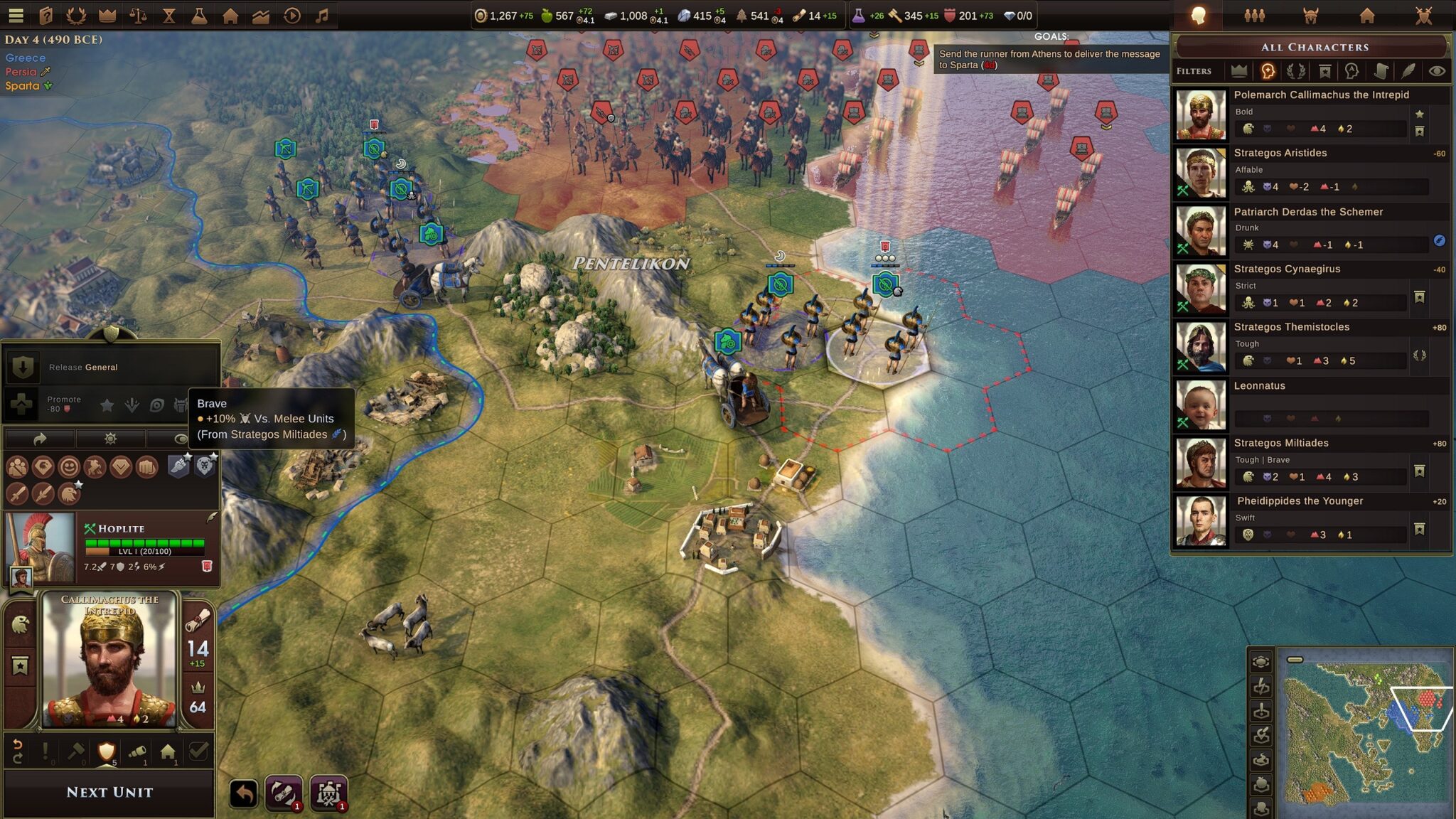
Table of Contents
New scenario for history fans
Heroes of the Aegean contains six scenarios based around the conflicts between Persia and the Greek states from the famous Battle of Marathon to the successor states of Alexander’s Great Empire.
It is not entirely clear to us why Mohawk Games chose this name, which is not necessarily a common one, because the island world between Greece and present-day Turkey does not actually play a role in the scenario. But the setting itself is very well chosen.
After all, in comparison to Civilization or Humankind, Old World is first and foremost characterised by the fact that we do not go through the entire history of humankind in the long-standing Epic-exclusive turn-based strategy, but remain in antiquity. And in this time period, the Persian wars are clearly one of the most conspicuous themes alongside the rise of Rome.
In other respects, too, this scenario pack makes more sense than we had initially expected. This, in turn, is due to Old World itself, which is simply better suited to this kind of scenario content than, say, Civilization.
What was Old World again exactly?
As a quick reminder, Old World is a 4X building game in the style of Civilization. However, it differs in some essential points. In addition to the aforementioned focus on only one era, Old World lets you slip into the skin of a mortal leader whose succession you have to settle, just like in Crusader Kings 3. If you fail, the game is over. Although the simulation of leaders, heirs to the throne and court servants is nowhere near as complex as in Crusader Kings, it is still enough to clearly set it apart from the genre competition.
While this mix does not always mesh perfectly in the base game, it shows its strengths in the DLC – at least in phases. In Civilization, such scenarios often seem contrived, also because we cannot follow the fate of individual characters.
Old World, on the other hand, lets us slip into the role of great Greek and Macedonian leaders, tells their life stories and combines this with special game mechanics.
From Marathon to Thermopylae
In the first short scenario you play a rudimentary reenactment of the Battle of Marathon, which is probably meant as a new introduction for players who haven’t touched the game for a long time and have therefore forgotten most of it – in short, people like me. So it’s a good idea.
After that, you hold back the Persians at Thermopylae with Leonidas as your general and fight the naval battle at Salamis in the same scenario, getting more ships the longer you held out with the Spartans beforehand.
While this is a nice but comparatively inconsequential introduction to the new content, from here on in things get much more intense. In the third scenario, you play as Philip II of Macedonia, the father of Alexander the Great. Like the historical role model, you are supposed to unite Greece – and you don’t have unlimited time to do so. In the course of the game you can choose several paths. For example, do you want to defeat the uncivilised peoples of Thrace militarily or persuade them to sign a diplomatic truce? Will you bring the Illyrians to your side through marriage or “pacify” them as well? And when will you venture against Athens and Sparta?
For whom and when is the addon free?
The Heroes of the Aegean DLC reviewed here is only free to customers who purchase Old World on GOG.com or Steam within the first two weeks of release on either platform.
lack of communication about goals
In between, the game weaves in the historical trajectory of events, revealing two weaknesses.
Firstly, Heroes of the Aegean communicates really badly at times what is going on in the first place. It was presumably clear to the developers that Philip had united Greece and that this goal must therefore be achieved in his lifetime. However, the game does not say that.
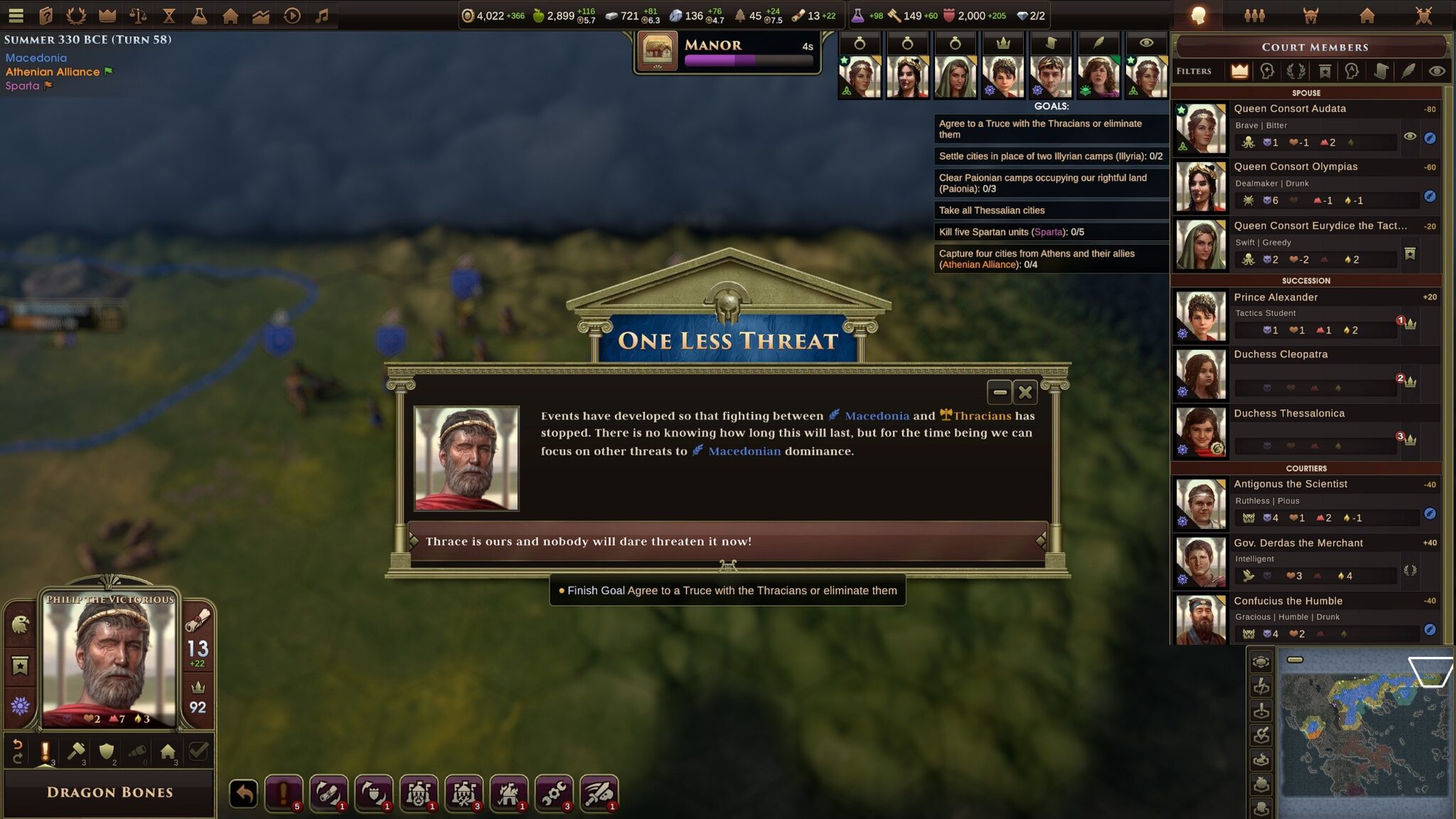
And stupidly, it also lets us raise our heir Alexander normally as an in-game character, which gives the impression that he will still play a role in this scenario. Or why else should we decide whether the good one should rather get a charisma point or a special trait?
It should therefore be understandable that we were quite surprised when a game that lasted several hours ended in defeat because Philip was stabbed by his bodyguard before he could conquer all of Greece.
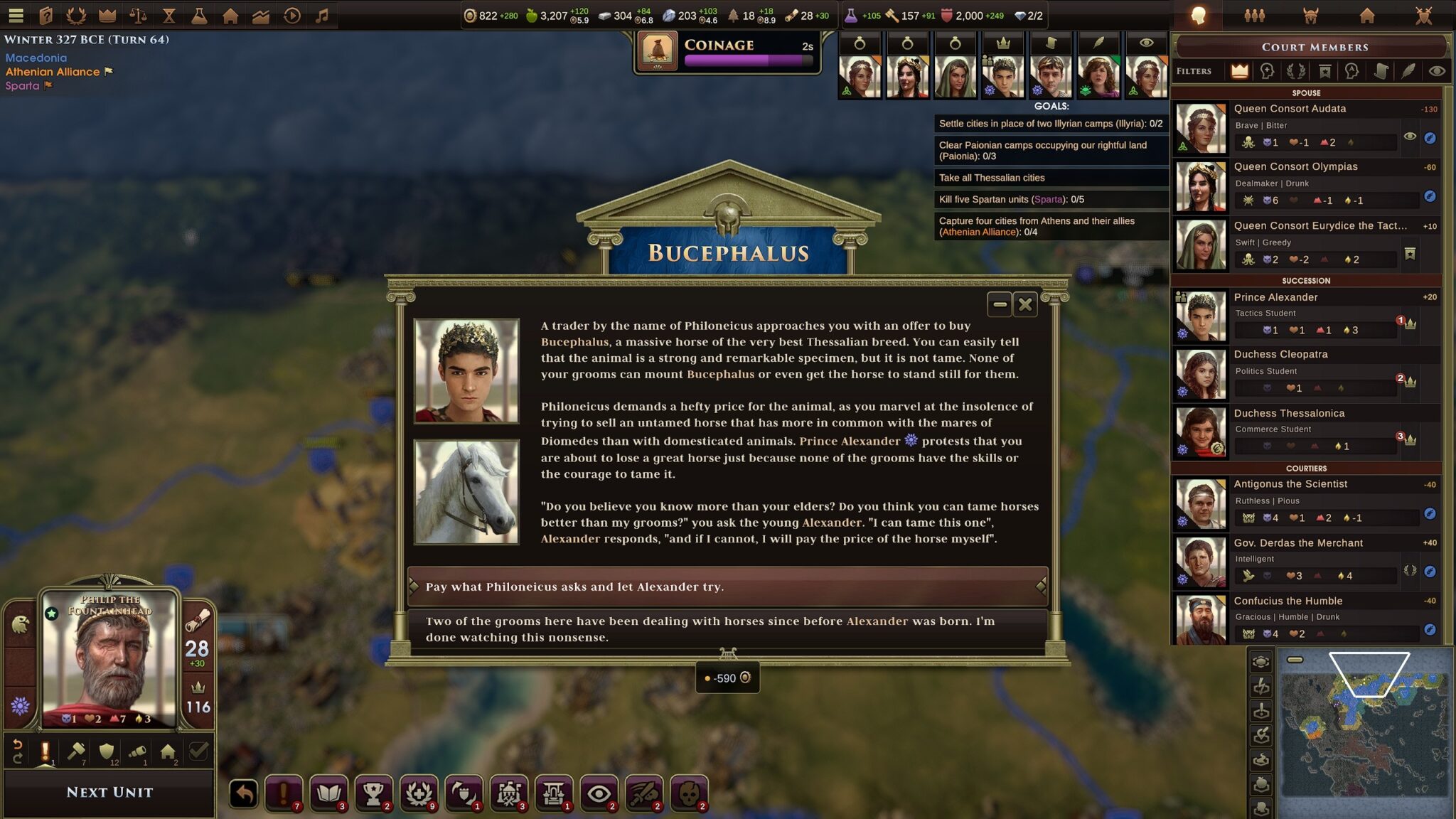
Story on rails
The second weakness of the DLC content stems from the first. For as you may now have noticed, Old World largely retells the real events. But it leaves you little room to go your own way.
Leonidas died at Thermopylae, so he must do the same here. The Greeks win at Salamis, so they win here too. You can’t even play the Persians. And if Philip was just murdered by his bodyguard in real life, that has to happen in the scenario too.
This makes many decisions feel irrelevant. If you choose a decision in an event that would obviously change the course of history significantly, you know beforehand that something will go wrong.
The DLC could have learned from role models
Other games handle such circumstances more wisely. Civilization 5, for example, allows you to play Rome in the Fall of Rome scenario and prevent that very pre-programmed fall. In the campaign of The Lord of the Rings: The Battle for Middle-earth, you can save Boromir with a lot of skill. The game doesn’t hint at this, but allows for the possibility, which feels enormously satisfying.
Old World: Heroes of the Aegean squanders potential here with its scenarios. But at least it offers a lot of variety, because each scenario plays uniquely. At times you only have access to troops, but not to cities, at other times, as in the fourth scenario, you have to deal primarily with domestic politics and work your way through a series of event chains in order to retain power over Greece as the mother of Alexander and at the same time support his campaign.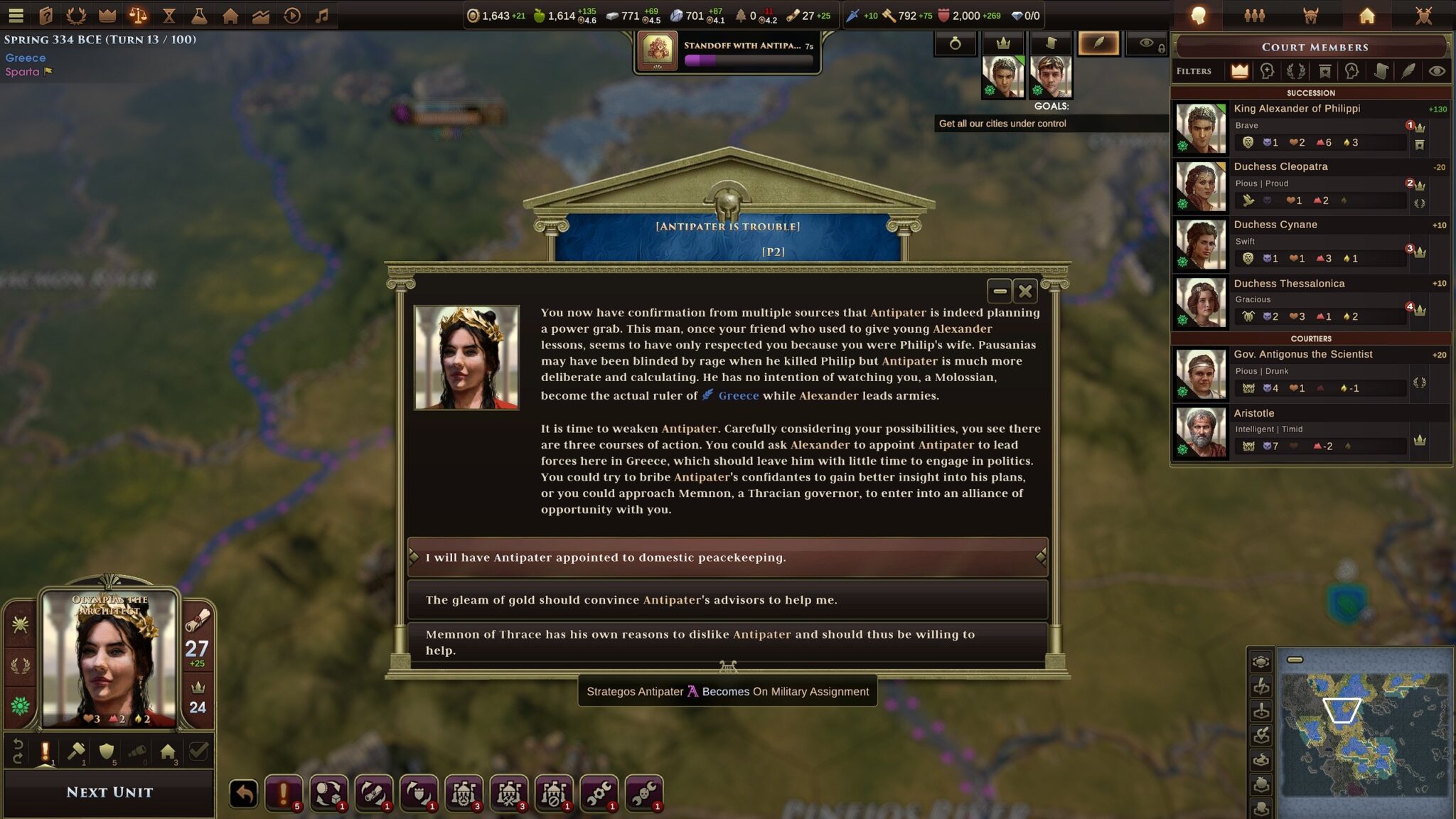
Freedom at last
The fifth scenario was not yet available at the time of our play, but is supposed to revolve around Alexander’s campaign through Persia. The last scenario begins after Alexander’s death. Here you get real freedom of choice for the first time. You can choose with which of the four Diadochi empires (the successor states of Alexander’s great empire) you want to win back the great empire.
Depending on your choice, the task may be more difficult or easier. For example, small Macedonia is in a bad starting position, while the rich Seleucid Empire in Mesopotamia is in a good one, although it is also situated between the Egyptian Ptolemaic Empire and the Asia Minor Antigonids and is thus exposed to a possible two-front war. Replay value is therefore ensured in this scenario in particular.
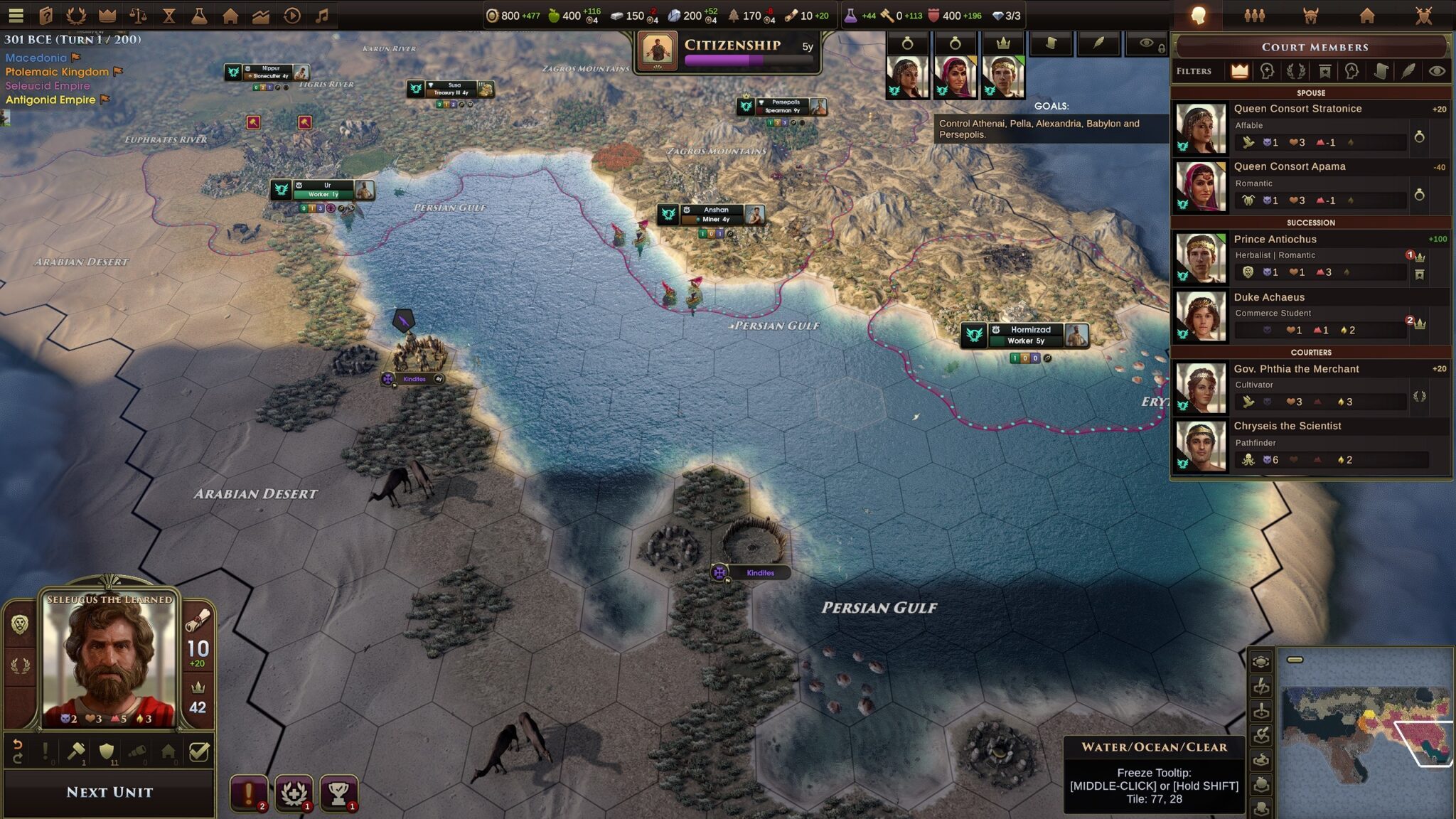
In the end, Heroes of the Aegean is neither a huge hit nor a disappointment. With some strengths based on the peculiarities of Old World as well as some weaknesses in the staging, the DLC would not be a recommendation at a purchase price of 20 or 30 euros (an exact price is not yet known). As an additional free treat, however, it is definitely worth your attention and could serve as a convincing aid for those who have so far flirted with the purchase of Old World but still hesitated.
Editor’s verdict
I didn’t quite warm to Old World originally. For me, everything didn’t quite fit together at the time. Especially the superstructure with the mortal leaders I didn’t find optimally integrated, so that I could never really identify with the characters.
But while I find almost all the scenarios in Civilization a bit forced and boring (also because they usually don’t fit in with the progression mechanics across epochs), I now feel the exact opposite with the DLC. Old World is more fun for me personally when it is set in a historical context, when events tell me about historical events and the characters have more meaning.
I also prefer to follow predefined goals in Old World rather than just settling down and beating up some AI in the standard game. The DLC has therefore been a good incentive for me to get back into Old World.

